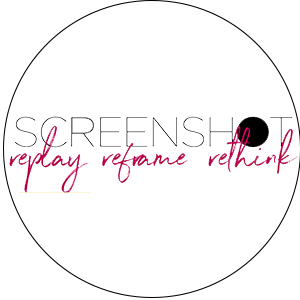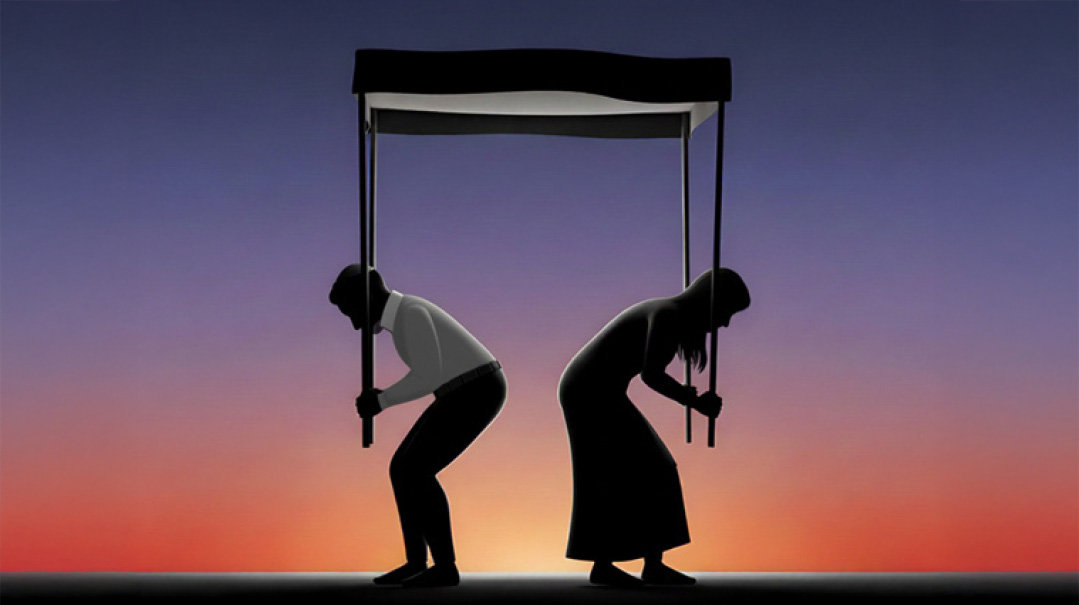Knowing and Not Knowing

I’d like to think that our drive to hear, see, read the news, stems from our nation’s deep sense of connection

I was standing at my kitchen counter this Shabbos morning, cutting up a salad, when my son and husband walked in from shul. “They must be so nervous,” my son was saying. “They have a few kids living in Neve Yaakov, right?”
My husband nodded grimly.
“What? What are you talking about?” I said.
I’m not sure exactly how the Shabbos news network functions. I think it relies on Hatzalah volunteers, non-Jewish workers in local institutions, and bochurim who seem genetically wired to hear and spread news updates. In this case, our insular, fully shomer Shabbos neighborhood managed to learn the basic details of Friday night’s terror attack long before Havdalah.
“Basic details” means you know but don’t really know, and it’s a strange state to be in. We all tried to mask that queasy feeling as the hours ticked by, investing extra feeling in the singing, keeping the conversation positive and happy, holding tight to the security blanket afforded by Shabbos. As Shalosh Seudos faded to an end, we wavered between savoring the peace of not quite knowing and dreading the inevitable moment when the vague rumors would take on numbers and names and faces.
When you work at a magazine that covers news, all those conflicting feelings carry extra angst. It takes a lot of inner work to construct a mental barrier that shuts out thoughts of work for the duration of Shabbos. It takes a lot of control to close that drawer in your brain and leave it closed.
When a tragedy hits, we have to move into planning mode very quickly. Which writers can work on this? How should the story be built? Which other pieces should get moved out for a different week? What happens to that neat magazine grid we updated yesterday, the rows and columns denoting page counts and ad allowances and proofreading status?
When Havdalah is over and the dishwasher has been put to work, you have to think fast and get moving quickly. But part of you wants to stay beneath the blanket of knowing-but-not-really knowing. And even once you’re ready to move out from under that blanket, you want the time to feel without having to act. To let the horror of the events wash over you, without any thought of deadlines or word counts.
You don’t want to be the kind of person who finds out that multiple innocent Jews were gunned down coming out of shul — and immediately thinks of Excel charts.
We live in a news-driven world, where reporters are on the scene minutes after an incident, where a private tragedy becomes public property before the victims’ families have time to process what happened. Sometimes that rush to get the scoop shows something voyeuristic, even ugly, about the conveyers and consumers of news.
But from my side of the process, knowing the people who work hard to cover stories sensitively and respectfully, I see a different motive. I see people who stop to feel pain, who think about bereaved families, who labor to find the right details that convey horrific events with respect and reverence. I see people who dread that switch from Shabbos mode to work mode, who cling to their last few moments of not knowing — because knowing hurts.
Yes, we want news, we crave news, we constantly check what’s happening. But I’d like to think that our drive to hear, see, read the news, stems from our nation’s deep sense of connection. We want to feel the pain, we want it to hurt. We are all part of one family, and we’re all seeking the details, the quotes, the humanity, that lend emotion to information and allow us to feel loss.
—Shoshana Friedman
Managing Editor
(Originally featured in Mishpacha, Issue 947)
Oops! We could not locate your form.







